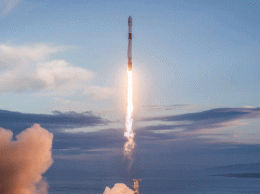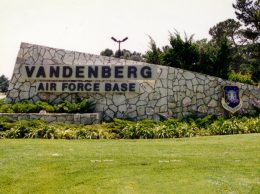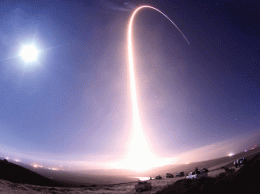
Henry Dubroff
Speculation about a pilotless space plane landing at Vandenberg Air Force Base reminds us of the symbiotic relationship between the Central Coast economy and its military bases.
Our unique location gives the military unbelievable assets to deploy in testing and advanced weapons and technology. But the region can reliably count on its defense-related assets, including Vandenberg and several research centers at Naval Base Ventura County, to help drive important bits of the technology industry along the Highway 101 corridor.
In the case of the X-37B landing, the region’s role is a bit more mundane. It is Vandenberg’s ultra-long runway, a location that’s not around a major population area, an over-the-ocean approach that’s easy to program and a landing field that doesn’t afford easy access to prying eyes that add up to a terrific location to land a spy plane.
The X-37B, roughly one-fifth the size of the space shuttle, was expected to end a nearly two-year classified mission with a not-so-secret landing at Vandenberg.
One of two X-37B robotic space planes in the Air Force fleet, the Boeing-built vehicle can remain in the air for long periods drawing power from an array of solar panels that are deployed once it reaches its destination in space.
Although there has been speculation the craft was testing space weapons or spy gear, the Air Force has been vague about its mission. The plan “is designed to demonstrate reusable spacecraft technologies for America’s future in space and operating experiments which can be returned to, and examined, on Earth,” an Air Force statement said.
The ability to land an X-37B at Vandenberg is just one of many assets the military uses in our region. Vandenberg itself is the home to an array of land-based missile interceptors that are a key component of the “Star Wars” defense system pioneered in the Reagan administration.
Naval Base Ventura County includes several advanced weapons systems laboratories and the all-important weapons test range off the uninhabited San Nicolas Island.
You can probably bet that the advanced semiconductors and sensors that make it possible to program a pilotless aircraft to spend nearly two years in orbit owe their effectiveness to materials and circuits researched, designed or built at one of a number of semiconductor companies in the area. If we could figure out which semiconductors went into the X-37B, we could probably get a better idea whether this particular mission was about space weapons, spying, both or none of the above.
For now, this may be one of the last landings of an X-37B at Vandenberg. The Air Force has leased space at the Kennedy Space Center in Florida and has said it plans to relocate the program there. The Air Force is also looking into whether an existing runway used to land the space shuttle in Florida could be used for landing future missions. But you can bet there will be more of them.
“Officials anticipate multiple missions will be required to satisfy the test program objectives, but the exact number of missions has not been determined,” an Air Force statement said.
• Contact Henry Dubroff at hdubroff@pacbiztimes.com.






 Print
Print Email
Email

















